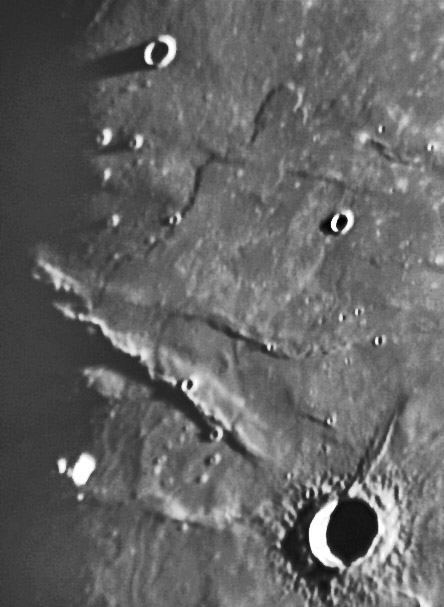
image by K.C. Pau
The Lunar 100 lists interesting features inversely according to their visibility. L1, the Moon, is big and easy to find. L100 is the bright swirl group just over the limb on the far side of the Moon. And L98 is such a difficult feature that only one observer has managed to image it, and he has done it four times! K.C. Pau, observing from his balcony in Hong Kong, has now taken his best image of the illusive lava flow in Mare Imbrium between Carlini and McDonald. This is the very best defined individual lava flow on the Moon - it is even shown on Rükl’s chart 10. Based on the small number of impact craters superposed on it this Imbrium flow is speculated to be as young as 2.5 billion years old; most other Imbrium lavas are roughly a billion years older. And the height of the flow is estimated at 35 m; usually when we speak of image resolution we mean horizontal resolution but K.C.’s image shows that vertical resolution in the tens of meters is obtainable.
Technical Details:
250 mm f/6 Newtonian + 2.5X barlow + Phillips Toucam Pro.
Related Links:
Rükl plate 10
K.C.’s previous closeups of this flow.
Yesterday, 2.6% of LPOD readers clicked on a sponsor ad - Thanks!
Now you can support LPOD when you buy ANY book from Amazon thru LPOD!
COMMENTS?
Click on this icon File:PostIcon.jpg at the upper right to post a comment.



